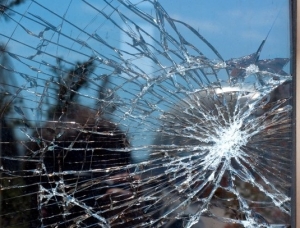Lawyer for Malicious Mischief Charge
Under Washington law, Malicious Mischief is the malicious damage to the property of another. This offense includes what we typically think of as "vandalism" although that term is not used in Washington law. If the damage to another person's property is truly accidental, it is not a crime in Washington law, and is left to the civil courts (rather than criminal courts). "Malice" means having an "evil intent, wish, or design to vex, annoy, or injure another person" but the law also allows a jury to infer malice from an action done in willful disregard for the rights of another person.
Common examples of malicious mischief are such acts as the intentional smashing of windows, slashing tires, kicking a door, or spray-painting the walls of a building. The punishments vary depending on the level of the Malicious Mischief (1st, 2nd or 3rd degree) as we discuss below.

If the offense is committed against a family or household member, or against a person with whom the defendant has a current or former dating relationship, the prosecuting attorney can allege that the act is a "domestic violence" offense. This allegation can be added even when there was no physical violence toward another person. Common defenses to the charge of Malicious Mischief include claims of accident, mistake as to ownership, diminished capacity, or mistaken identity.
Since the
current nationwide health issues, the police have been less likely to arrest someone or to issue a ticket
on the spot. (An officer won't issue a citation with a court date, because court dates
are being continued.)
Instead, the suspect is informed that he or she will receive a summons
in the mail. This can be an issue because the court will often mail a summons to an
old address or will try to mail the summons to a physical address.
A defendant will not get notice of the court date, will not appear and
will end up with a warrant for their arrest. It is best to reach out to a lawyer for assistance at the outset if at
all possible.
(An officer won't issue a citation with a court date, because court dates
are being continued.)
Instead, the suspect is informed that he or she will receive a summons
in the mail. This can be an issue because the court will often mail a summons to an
old address or will try to mail the summons to a physical address.
A defendant will not get notice of the court date, will not appear and
will end up with a warrant for their arrest. It is best to reach out to a lawyer for assistance at the outset if at
all possible.
Malicious Mischief First Degree Charge
Under RCW 9A.48.070 Malicious Mischief in the First Degree is defined as: 1) knowingly and maliciously causing damage to another's property in an amount exceeding $5,000, or 2) causing an interruption in service provided to the public by damaging an emergency vehicle, or 3) tampering with an airplane so as to cause damage or a safety risk.
Malicious Mischief in the First Degree is a Class B felony, which is punishable by up to 10 years in prison and a fine of $20,000. Under the sentencing guidelines, a first time offender faces a standard range of 0 to 90 days in jail. As with most felonies in Washington, the offense can be coupled with weapons enhancements. If a person is convicted of committing this offense while being armed with a firearm, there is an additional penalty of 3 years in the state penitentiary. If the offense is committed while being armed with a deadly weapon (other than a firearm) the enhancement is 12 months in prison.
Malicious Mischief Second Degree Charge
Malicious Mischief Second Degree (RCW 9A.48.080) is defined as 1) knowingly and maliciously causing damages to the property of another in an amount in excess of $750, or 2) causing a risk of impairment or interruption of a public service by damaging or tampering with an emergency vehicle or other government property.
Second Degree Malicious Mischief is a Class C felony and has the maximum penalty of 5 years in prison and a $10,000 fine. A first time offender faces a standard penalty range of 0-60 days of incarceration under Washington's sentencing guidelines. The offense is subject to the state's weapons enhancement law, so if the offense is committed when the defendant is armed with a firearm, there is an additional penalty of 18 months in prison. If the defendant is armed with a deadly weapon, the additional penalty is 6 months.
Malicious Mischief 3rd Degree Charges
RCW 9A.48.090 defines Malicious Mischief 3rd Degree as: 1) damages the property of another person and does so knowingly and maliciously, or 2) writes or paints graffiti on the property of another without permission. Under Washington state law, Malicious Mischief 3rd Degree is a gross misdemeanor, meaning the maximum penalty is 364 days in jail and a $5,000 fine.
Free Consultation:
If you would like to speak to a criminal defense lawyer, please reach out to our firm to see how we can help you on your malicious mischief case. Our lawyers have experience fighting these charges and winning, on both the misdemeanor and felony level. We would look forward to speaking to you.
(See also our page on disorderly conduct.)
If you or a loved one is faced with a charge of Malicious Mischief, call our office for a free consultation to learn about how our lawyers can help you.
